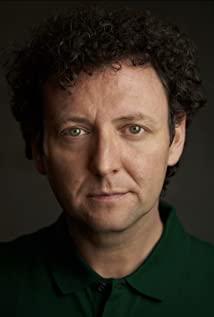True love does have many sides, and this film is indeed one of the true aspects of "true love", but it is the most tragic side of true love.
=========
This Danish film is one of LarsvonTrier’s early conscience trilogy. It is a shocking narrative of a mentally handicapped woman who gave everything to believe in love. This film follows in the dark Man Dance also has a dark theme and style, but it is embellished with hope and miracles. The three-hour movie is not boring at all, and it has a very brilliant acting and plot.
The outline of the plot ----------In a small town in Ireland, the gentleman who was paralyzed on the hospital bed did not want his mentally handicapped wife Bess to be a vacant boudoir for him, and then asked Bess to have sex with other men, simply Bess actually held a pure heart in order to comfort her husband, obediently following his words, and even thought that God would bring a miracle that his husband's condition would get better because of this....
The most special thing about this film is that the director expresses that kind of perseverance and conflict of love and belief. For Bess, the rare love she does not want to give up easily, but a series of cruel reality forces him to face it alive. The cry from her heart, Bess only believes and trusts her husband Jane. The shadow of his brother’s death caused Bess’ trauma. It was Jane who got him out of this shadow, so she put everything on Jane, even It is her own happiness and sorrow that are tied to Jane. In fact, it is not incomprehensible that such a traumatized mentally handicapped woman will completely rely on a man she trusts. However, after he was newly married, facing the reality that Jane must go to work in another place, it is also One can imagine how much impact Bess’ soul will have. Her only sustenance and consolation is that she speaks to herself in the church and speaks to God, acting as God and herself, and convincing herself to be able to overcome his greatest difficulties.
She doesn’t need to go to church to talk to the priest. In her mind, she can talk to God directly. This simple belief is the key to guiding him to return to reason. Originally, Bess, who was expecting Jane to come back soon, unfortunately received Jane. The sad news of accidental paralysis, this kind of mental shock, does need a lot of time to calm down a mentally handicapped woman, and she who puts all of her on Jane, also tries hard to do something for Jane, when she is paralyzed. When she asked Bess to have sex with someone because she lost her senses, to evoke her memory of love, this kind of idea is absolutely unacceptable to most people, and Bess could not accept it at the beginning. However, after he talked with her virtual God, All these things that were unacceptable to her turned into salvation and sacrifice for Jane to recover, as if she had received a message from God and ordered her to listen to Jane and do things that made herself unhappy, even though she did I am not very happy, but I still hope that Jane can be happy. This kind of pure belief in love may seem to outsiders to think that Bess is stupid, but if you take a longer time to look at this incident, the whole explanation will be completely different.
The director is quite shocked to merge all the coincidence plots together, but it is extremely real. When everyone has little hope of Jane's recovery, only Bess always believes that God will restore her husband, as long as she does things according to her husband's orders. However, the last belated miracle turned all these missed opportunities into tragedies, making people think about whether Bess was talking to God, or whether she was talking to herself because of mental illness, and all of this. The coincidence caused Jane to regain hope for life. Is this really a coincidence? We don’t know, but the director does challenge the audience’s impact on love and belief. When the love you believe in will lead you to the path of destruction, will you convince yourself to fulfill your partner’s wish because of this simplicity Belief ignited all the opportunities. However, from a medical point of view, Bess may just be a self-destructive road because of over-reliance on Jane. However, unpredictable beliefs and coincidences make people reflect on themselves. Persistence to reason.
I really like the director’s chapter-by-chapter narrative to present the events Bess has experienced in various periods, and the chapters also have special landscape paintings and songs to express the ideas the director wants to express. I personally find it very interesting, mainly They are mainly based on landscape photography by the sea, but they are just right to point out the theme of the chapter. In addition, I would like to mention the heroine Emily Watson’s most shocking acting since the film, playing the fragile mentally handicapped woman Bess, not only the emotional reactions and decisions she has made during the various sufferings she has experienced in this process, The moving heartstrings of interpretation will arouse sympathy and reluctance for Bess in people's hearts. Many emotional breakdowns that can't stand the blow make my heart bleed. It is too real and natural, but it is extremely sad. Quite outstanding acting! The actor Stellan Skarsgård is also a hard-core Norwegian actor. I am quite sure of his acting skills in this film. He plays Jane who is paralyzed but has to endure grief and regain hope for life. It is also quite good indeed. I recommend it to those who like the plot. Friends of the film.
Winning stories:
Art Film Festival Best Foreign Language Film
Cannes Film Festival Grand Jury Prize
Caesar Award for Best Foreign Language Film
of the European Film Award for Best Picture, Best Actress
London Film Critics Association Rookie of the Year Award
, New York Film Critics Association for Best Actress , Best Photography, Best Director
==========
I love the film by the Danish geek director Lars Von Trier (a director that readers who love to read novels can't miss). Although from a certain perspective, his story is always more deviated from the so-called common sense than the audience expected, but under the somewhat exaggerated plot at first glance, the humanity depicted is always so profound.
(The story follows) The plot of "Out of the Waves". In a small town in Ireland, Beth, a kind-hearted woman who believes in Catholicism and has some mental problems, falls in love with Yang, an oilfield worker who is a foreigner, and the two go well. marry. Beth’s sexual enlightenment is his husband. They live a newly married life and get along well and love each other. They are also passionate about sex. But an accident caused by working machinery left Yang paralyzed. Beth does not give up taking care, but the seriously injured husband has not improved. Yang, who is lying on the bed all day long, suddenly thinks (or because of his head injury), asking his wife to have sex with other men. After returning, he tells herself the process. I can get sexual pleasure through this process.
"Out of the Waves", which started in the Conscience Trilogy, is undoubtedly a tragic story. Lars Von Trier has packaged the story as a "abnormal love story", but when the wrapping paper is opened, the contents are definitely more complicated than imagined. . A lot of "consciousness" is covered in this. The audience saw a kind-hearted woman with a slight mental disorder, facing the powerlessness of this society. Beth is in the movie, alone with the oppression of the entire society. She didn't resist, not because of cowardice, but because she almost didn't even have the ability to resist. Grandpa didn't want to recognize this mentally unstable granddaughter, the daughter whose biological mother was afraid that she would be disorderly and mad under pressure, and even the sister-in-law who had known her and cherished her and sent her away. In addition, Lars Von Trier was ingenious in setting Bess psychiatrist. When Bess listened to her husband and stripped off her clothes to seduce the young and handsome doctor, the doctor flatly refused based on the ethics between the doctor and the patient. When he was alone in the room for the second time, he overthrew his inherent moral values, and took the initiative to pretend to touch Beth's body inadvertently, confessing love to Beth. It can be seen from this side that Ras Von Til is full of distrust of human nature and thinks that humans are unstable individuals, which reminds me of Dustoevsky’s role in "Crime and Punishment." In an ambiguous swaying state, it is like transparent water in a bucket. It is impossible to judge good or evil. The only thing that can be confirmed is that as long as external forces intervene slightly, the water will slosh. While he challenges the morality of doctors in the movie, he is also tantamount to provoking the morality of the audience. Is the doctor a bad person? It's hard to say yes. Will care about Beth's situation and avoid the first tease. But can you say that he is a good person? It is also difficult to say that he has the idea of having a relationship with the patient, and the patient is a vulnerable woman with a paralyzed husband and mental problems! And what about Beth's husband? He works hard, is loyal to his colleagues, and treats Beth well before he is paralyzed. But after being paralyzed, he said that only "love" can keep oneself alive, and to maintain "love", it must be achieved by Beth's relationship with other men, and even openly stated that it was not for Beth's sake. It's all for myself.
Lars Von Trier also satirized religion. In addition to highlighting the ruthless discrimination of religion, he took many pictures of prayers and contrasted with the misfortunes of Beth, and also used a cryptic method to express his views on religion. The "maliciousness" in Lars Von Trier's films is one of the reasons why his films always attract me so much. Perhaps for him, the "hypocrisy" he identified could not be persuaded, because people did not listen to persuasion at all, so he used poison to fight against it and use "malicious" to fight against it, although he understood that it was difficult to resist the hypocritical behemoth. His malice is not evil for the sake of evil, but a manifestation of his "conscience."
There are two sad plots in the movie, which are deeply imprinted in my mind. One is the scene of Beth being humiliated by a group of naughty children, calling prostitutes and throwing stones. It is clearly a plot that cannot be "guava". In this movie, the tension seems to be bulging, and the emotions stacked in front of me burst out at this moment, as if I felt pain and I was thrown by a stone. Admire Emily Watson's acting skills (her acting skills are really amazing in this movie! The role is also quite heavy, and the role setting also has a certain space for the male protagonist to be too plain). Also admire Lars Von Trier’s sense of rhythm, which I call Ras Von Trier’s "back-swing big bang." The other is when Beth is seriously injured in the hospital, shouting her husband's name hoarsely. She is so close to her husband, but the paralyzed husband is helpless in her hospital bed and can't even express comfort. If there are so-called levels of loneliness, then this picture is really a "solitary nuclear bullet," deep and destructive, and it burns indelible traces of memory. The sorrow of "same bed with different dreams" is not enough, but it is "same dream with different beds." Don't be fooled by the title. After watching this movie, you won't have the refreshing feeling of breaking through the waves, but will be overwhelmed by the big waves. Even the title is flipped. Lars von Trier is really choking.
View more about Breaking the Waves reviews











